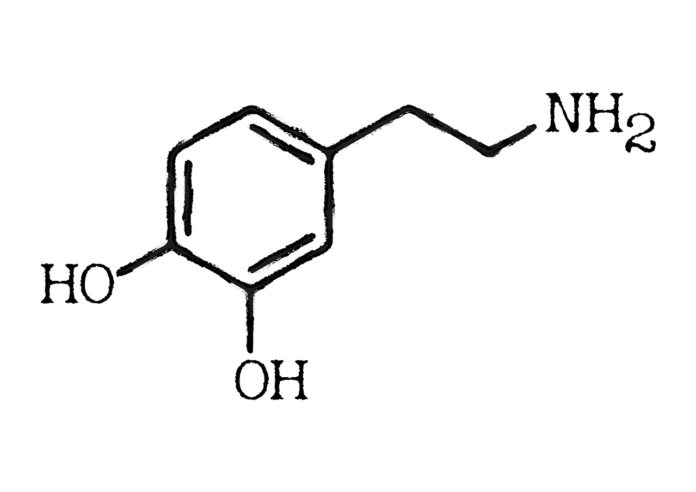Dopamine is a fascinating neurotransmitter and hormone that plays a vital role in various body functions. It acts as a chemical messenger, facilitating communication between nerve cells in the brain and the rest of the body. Additionally, it serves as a hormone that affects different physiological processes. In this article, we will explore the multifaceted role of dopamine in the body, how it influences our emotions, and the impact of dopamine levels on our overall well-being.
What is Dopamine?
Dopamine is a type of monoamine neurotransmitter that is predominantly produced in the brain. It belongs to a group of hormones known as catecholamines, which includes epinephrine and norepinephrine. These hormones are not only produced in the brain but also by the adrenal gland, which is located on top of each kidney. In the brain, dopamine is released by the hypothalamus, while in the rest of the body, it is released into the bloodstream by the adrenal gland.
The Role of Dopamine in the Body
Dopamine plays a crucial role in various body functions, acting as both a neurotransmitter and a hormone. As a neurotransmitter, dopamine is involved in:
1. Role of Dopamine in Movement
Dopamine is essential for coordinating and regulating movement in the body. It helps transmit signals from the brain to the muscles, allowing smooth and controlled movements.
2. Role of Dopamine in Memory
Dopamine is involved in memory formation and retention. It plays a role in the consolidation and retrieval of memories, influencing our ability to remember past events and information.
3. Pleasurable Reward and Motivation Dopamine
Dopamine is often referred to as the “feel-good” hormone because it is closely linked to the brain’s reward system. It is responsible for the pleasurable sensations we experience and motivates us to seek out rewarding activities and behaviors.
4. Behavior and Cognition of Dopamine
Dopamine plays a role in regulating behavior and cognition. It affects our ability to make decisions, plan and execute actions, and maintain focus and attention.
5. Sleep and Arousal Dopamine
Dopamine is involved in regulating sleep-wake cycles and promoting wakefulness. It helps promote alertness during the day and plays a role in the regulation of sleep patterns.
6. Role of Dopamine in Mood
Dopamine has a significant impact on mood regulation. Imbalances in dopamine levels can contribute to mood disorders such as depression and bipolar disorder.
7. Role of Dopamine in Learning
Dopamine is crucial for learning and acquiring new information. It aids in the formation of new neural connections and enhances synaptic plasticity, which is essential for learning and memory processes.
8. Role of Dopamine in Lactation
Dopamine also plays a role in lactation. It helps stimulate the production and release of breast milk in lactating individuals.
As a hormone, dopamine has various effects on the body:
1. Fight-or-Flight Response
Dopamine, along with other catecholamines, is involved in the body’s fight-or-flight response. It helps prepare the body to respond to stress or danger by increasing alertness and mobilizing energy resources.
2. Blood Vessel Regulation
Dopamine can cause blood vessels to relax or constrict, depending on the dose. At low doses, it acts as a vasodilator, promoting relaxation of blood vessels. At high doses, it acts as a vasoconstrictor, causing blood vessels to constrict.
3. Sodium and Urine Regulation
Dopamine influences the balance of sodium and water in the body. It increases sodium and urine removal from the body, helping to maintain fluid balance.
4. Insulin Production
Dopamine reduces insulin production in the pancreas, which can have implications for individuals with diabetes or insulin resistance.
5. Gastrointestinal Function
Dopamine slows down gastrointestinal (GI) content movement and helps protect the lining of the gastrointestinal tract. It plays a role in maintaining gut health and preventing digestive issues.
6. Immune System Regulation
Dopamine can modulate immune system activity. It reduces lymphocyte activity, which is involved in the immune response.
Dopamine and Happiness: The Feel-Good Hormone
Dopamine is often referred to as the “feel-good” hormone because of its role in experiencing pleasure and happiness. When we engage in activities or behaviors that are pleasurable, such as eating delicious food or engaging in enjoyable hobbies, our brain releases dopamine. This surge of dopamine creates a sense of pleasure and reinforces the behavior, motivating us to seek out similar experiences.
The reward system in our brain, which is closely tied to dopamine release, is evolutionarily designed to promote behaviors necessary for survival, such as eating and reproducing. However, this system can also be hijacked by certain substances or behaviors, leading to addiction.
Certain substances, such as junk food and sugar, can trigger a large release of dopamine in the brain, creating intense feelings of pleasure. This can lead to addiction
Click here for Full Information about Dopamine in Hindi




